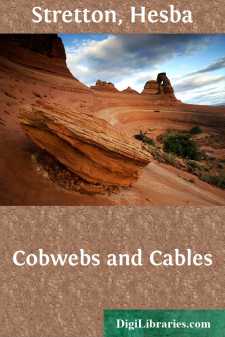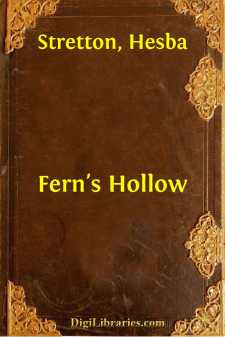Categories
- Antiques & Collectibles 13
- Architecture 36
- Art 48
- Bibles 22
- Biography & Autobiography 813
- Body, Mind & Spirit 142
- Business & Economics 28
- Children's Books 15
- Children's Fiction 12
- Computers 4
- Cooking 94
- Crafts & Hobbies 4
- Drama 346
- Education 46
- Family & Relationships 57
- Fiction 11828
- Games 19
- Gardening 17
- Health & Fitness 34
- History 1377
- House & Home 1
- Humor 147
- Juvenile Fiction 1873
- Juvenile Nonfiction 202
- Language Arts & Disciplines 88
- Law 16
- Literary Collections 686
- Literary Criticism 179
- Mathematics 13
- Medical 41
- Music 40
- Nature 179
- Non-Classifiable 1768
- Performing Arts 7
- Periodicals 1453
- Philosophy 64
- Photography 2
- Poetry 896
- Political Science 203
- Psychology 42
- Reference 154
- Religion 513
- Science 126
- Self-Help 84
- Social Science 81
- Sports & Recreation 34
- Study Aids 3
- Technology & Engineering 59
- Transportation 23
- Travel 463
- True Crime 29
Hesba Stretton
Hesba Stretton was the pen name of Sarah Smith, an English writer of children's books and religious literature, born in 1832. She gained popularity with her novel "Jessica's First Prayer" (1867), which highlighted the struggles of the urban poor, particularly homeless children. Stretton was deeply involved in social reform, especially advocating for child welfare and protection. Her works, often focusing on moral themes, became widely read during the Victorian era, influencing both British and American readers.
Author's Books:
Sort by:
by:
Hesba Stretton
CHAPTER I. NOT ALONE. It had been a close and sultry day—one of the hottest of the dog-days—even out in the open country, where the dusky green leaves had never stirred upon their stems since the sunrise, and where the birds had found themselves too languid for any songs beyond a faint chirp now and then. All day long the sun had shone down steadily upon the streets of London, with a fierce glare...
more...
by:
Hesba Stretton
ABSCONDED. Late as it was, though the handsome office-clock on the chimney-piece had already struck eleven, Roland Sefton did not move. He had not stirred hand or foot for a long while now; no more than if he had been bound fast by many strong cords, which no effort could break or untie. His confidential clerk had left him two hours ago, and the undisturbed stillness of night had surrounded him ever...
more...
by:
Hesba Stretton
THE HUT IN THE HOLLOW. Just upon the border of Wales, but within one of the English counties, there is a cluster of hills, rising one above the other in gradual slopes, until the summits form a long, broad tableland, many miles across. This tableland is not so flat that all of it can be seen at once, but here and there are little dells, shaped like deep basins, which the country folk call hollows; and...
more...
by:
Hesba Stretton
CHAPTER THE FIRST. AN OPEN DOOR. I think I was as nearly mad as I could be; nearer madness, I believe, than I shall ever be again, thank God! Three weeks of it had driven me to the very verge of desperation. I cannot say here what had brought me to this pass, for I do not know into whose hands these pages may fall; but I had made up my mind to persist in a certain line of conduct which I firmly...
more...





